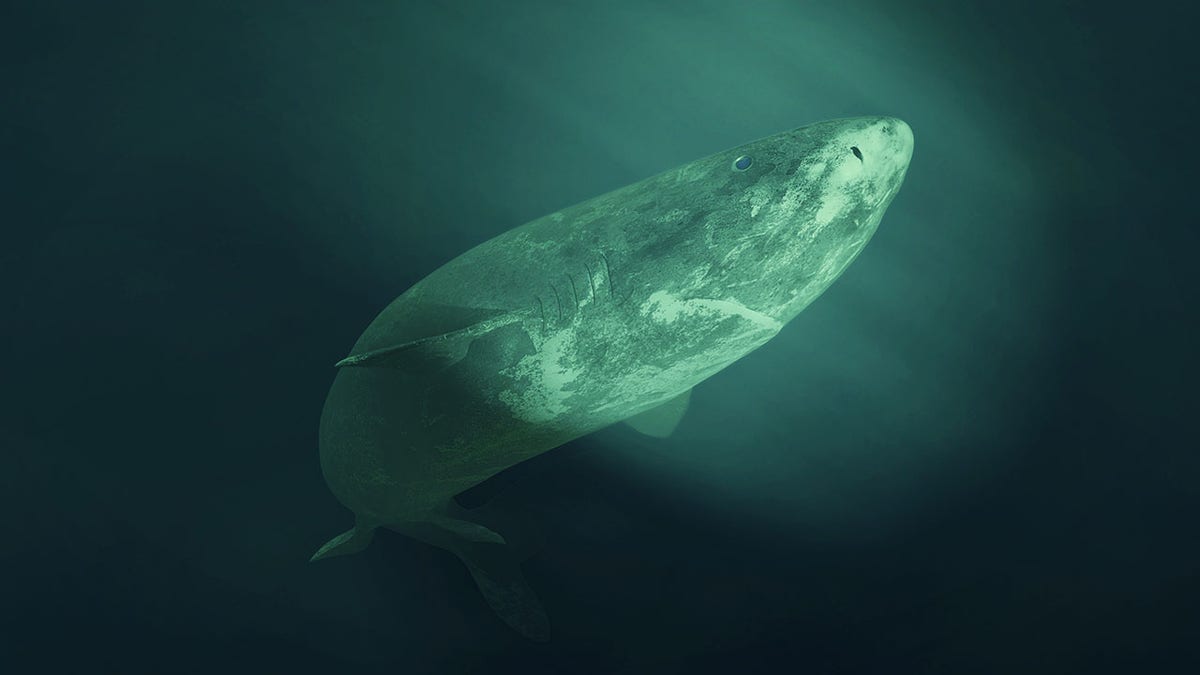Fox News Flash top headlines for April 13
Fox News Flash top headlines are here. Check out what's clicking on Foxnews.com.
Researchers believe this could be a first.
Last month, a 100-year-old shark's body was found washed ashore near Newlyn Harbour in England. After studying the body, researchers believe that a brain infection, never before seen in this species of shark, may have been responsible for its death.

Pathologists believe that the Greenland shark had meningitis, which caused the shark to leave its natural deep water habitat. (iStock)
"During the post-mortem examination, the brain did look slightly discolored and congested and the fluid around the brain was cloudy, raising the possibility of infection," James Barnett, pathologist from the Cornwall Marine Pathology Team said. "This was then confirmed on microscopic examination of the brain (histopathology). A species of Pasteurella, a bacteria, was isolated from the fluid and this may well have been the cause of the meningitis."
ANGLER REELS IN MASSIVE ‘FISH OF A LIFETIME,’ SETS NEW STATE RECORD
Pathologists believe that the Greenland shark having meningitis caused the animal to leave its natural deep water habitat, according to a news release from the ZSL Institute of Zoology.
CLICK HERE TO GET THE FOX NEWS APP

This would be the first recorded example of meningitis in a Greenland shark. (iStock)
"The shark’s body was in poor condition and there were signs of hemorrhage within the soft tissue around the pectoral fins which, coupled with the silt found in her stomach, suggested she may well have live stranded," Barnett explained. "As far as we’re aware, this is one of the first post-mortem examinations here in the UK of a Greenland shark and the first account of meningitis in this species."
Project leader for ZSL's Cetacean Stranding Investigation Program Rob Deaville said, "This unfortunate and extraordinary stranding has allowed us to get an insight into the life and death of a species we know little about. Discovering that this shark had meningitis is likely a world’s first, but the significance of this in terms of any wider stressors is unknown."
CLICK HERE TO SIGN UP FOR OUR LIFESTYLE NEWSLETTER

Project leader for ZSL's Cetacean Stranding Investigation Program Rob Deaville said, "This unfortunate and extraordinary stranding has allowed us to get an insight into the life and death of a species we know little about." (iStock)
Deaville continued to explain that Greenland sharks and other deep species could be impacted by human pressures on the ocean, but at this point, there isn't enough evidence to make a definitive statement.
